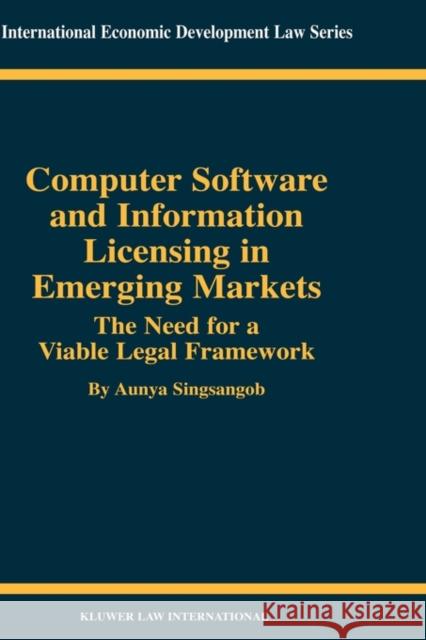Computer Software and Information Licensing in Emerging Markets: The Needs for a Viable Legal Framework » książka
Computer Software and Information Licensing in Emerging Markets: The Needs for a Viable Legal Framework
ISBN-13: 9789041199072 / Angielski / Twarda / 2003 / 336 str.
Computer Software and Information Licensing in Emerging Markets: The Needs for a Viable Legal Framework
ISBN-13: 9789041199072 / Angielski / Twarda / 2003 / 336 str.
(netto: 1164,70 VAT: 5%)
Najniższa cena z 30 dni: 1198,17
ok. 16-18 dni roboczych
Bez gwarancji dostawy przed świętami
Darmowa dostawa!
There is no longer any doubt that, for the foreseeable future, public access to computer software and information is essential for the economic development of every country on earth, rich and poor. Yet it is precisely here, in this most forward-looking of technologies, that the ancient legal battle lines of private ownership versus public interest are being drawn again, with extreme intransigence, in the field of international law pertaining to intellectual property rights. In a situation bristling with ironies, it is particularly disturbing that the rampant software piracy in developing nations undermines local development of this crucial economic sector, halting growth and actually reinforcing the global dominance of a few U.S. companies. It is urgently necessary to create a legal framework that not only protects licensors and makes piracy unattractive, but also fosters the growth of software and information industries in every country "f and particularly in those emerging countries most desperate for economic recovery. Dr. Singsangob's study is enhanced by in-depth comparative analysis of numerous provisions in applicable laws of the United States, Thailand, and the European Union, as well as international conventions and the U.S. Uniform Computer Information Transaction Act (UCITA). Although he clearly exposes the conflicts and incompatibilities that underlie the complexity of this area of the law, he argues that a viable legal regime is not far to seek, although time must be allowed for the current bias in favour of licensors to be corrected. He asserts that some such fundamental legal change must occur if we are to have a democratic future. This is a book that promises to bearfruit in the thinking and policymaking of professionals in a number of fields, including economic development, contract law, technology development, and communications law.











